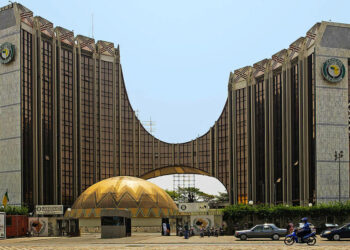The Nigerian Federal Government has fallen short of its fiscal budget targets for the initial seven months of 2023, as per data obtained from the Medium Term Expenditure Framework for the period 2024-2026, as reported by Nairametrics.
The report highlights the level of fiscal crisis currently being faced by the government.
According to the budget performance data within the report, the federal government managed to accumulate revenue totaling N5.1 trillion during the first seven months of 2023. This figure falls short of its prorated target of N6.4 trillion, signifying a budget variance of 19.5%.
Additionally, the government’s overall expenditure during this period stood at N8.5 trillion, in contrast to a budgeted expenditure of N13.2 trillion for the same period, resulting in a budget variance of 34.9%.
Breakdown of the data
Revenue: The major revenue source for the government, oil revenue, generated only N813.58 billion, significantly lower than its budgetary target of N1.3 trillion, representing a substantial variance of 37.4%.
- Nigeria, as a whole, garnered total oil and gas receipts of just N1.6 trillion, falling short of a prorated target of N2.69 trillion.
- A portion of this oil revenue is shared with the federal government, accounting for the N813.58 billion mentioned above.
- Non-oil taxes, on the other hand, accumulated a total of N4.69 trillion, exceeding the N4.1 trillion budgeted when prorated.
- This means that, on an annualized basis, the country generated taxes amounting to N8 trillion, equivalent to just 3.7% of GDP.
- Other revenue sources, such as revenue from Solid Minerals after derivation and Electronic Money Transfer Levy, contributed N140.79 billion.
- The federal government’s share of the net federation account is 52.68%, while the state and local government’s share of revenue stands at 26.72% and 20.6%, respectively.
- The net VAT pool account distributable to the federal government is 15%, while the state and local governments receive 35% each.
Expenditure: Concerning recurrent expenditure, the government incurred a total of N7.1 trillion, which includes non-debt recurrent expenditure of N3.2 trillion. Notably, non-debt recurrent expenditure experienced a 33% reduction from the budgeted N4.8 trillion.
- Meanwhile, debt service expenditures reached N3.9 trillion, a 2.9% variance compared to the N3.8 trillion budgeted. One significant difference is the increase in the “Ways and Means” category, which rose from N700 billion to N1.69 trillion.
- However, only about N857.08 billion (25% of the pro-rata budget) has been released for Ministries, Departments, and Agencies (MDAs) for capital expenditure as of July 2023.
- The government attributes this performance level, in part, to the introduction of the “Bottom-up Cash Plan” arrangement, effective from 2023.
This approach involves government agencies creating monthly cash requirements based on their actual needs, rather than receiving fixed allocations, with the aim of improving capital budget execution. It also entails the establishment of a revenue management team to identify and address revenue leakages, thereby increasing internally generated revenues (IGR).
What this means
The Nigerian Federal Government’s fiscal performance for the first seven months of 2023 raises significant concerns that could contribute to a fiscal crisis.
- Firstly, there is a notable revenue shortfall, with the government collecting only N5.1 trillion compared to the prorated target of N6.4 trillion, resulting in a 19.5% budget deficit.
- This revenue gap poses challenges for funding essential budgetary commitments.
- Secondly, the decline in oil revenue, a major income source for Nigeria, is alarming. Oil revenue amounted to only N813.58 billion, well below the N1.3 trillion budgeted target.
- Fluctuations in global oil prices and reduced production may be contributing to this decline, which has adverse implications for the country’s economy.
- Thirdly, government expenditure during this period exceeded revenue significantly, resulting in a budget deficit. The N8.5 trillion expenditure outpaced income, potentially leading to increased borrowing and worsening fiscal challenges.
Additionally, a substantial portion of the budget continues to be allocated to servicing debt, limiting resources available for critical sectors.























